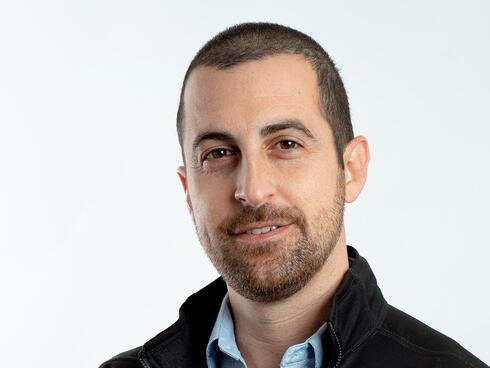
2025 VC Survey
Here’s how Israel can “carve its own distinct path” in the AI revolution
Greenfield Partners Partner Raz Mangel shared with CTech how Startup Nation can succeed in the AI revolution and how the firm helps companies achieve their goals.
“Israel isn’t missing out on the AI revolution; it’s carving its own distinct path by prioritizing AI-enabled applications and vertical AI solutions and focusing on the Israeli innovation core - infrastructure and deep tech. Rather than vying to build mass-adopted foundational models, which demand enormous capital,” explained Raz Mangel, Partner at Greenfield Partners.
Mangel joined CTech for its 2025 VC Survey to share predictions on the year ahead - specifically, what sectors Startup Nation can thrive in and how Israel can find its own way to success. “This approach not only sidesteps the prohibitive costs associated with developing such models but also empowers startups to deliver specialized, enterprise-ready offerings that enhance productivity and efficiency for global customers,” he added.
Through its G2M (Greenfield Growth Momentum) program, the firm provides tailored guidance and actionable frameworks across its seven pillars of efficient growth, giving CEOs the runway they need to build unapologetically while ensuring they scale with discipline, speed, and enduring impact.
You can read the entire interview below.
Fund ID
Name of fund/funds: Greenfield Partners
Total sum of the fund: ~$1 billion
Partners: Shay Grinfeld, Yuda Doron, Avery Schwartz, Raz Mangel, Nir Goldstein
Notable/select portfolio companies (active): Vast Data, Coralogix, Exodigo, Silverfort, Torq
Notable exits: Guardicore, acquired by Akamai for $600 million, Avanan, acquired by Check Point Software for $300 million
2024 is almost over. How can you summarize it in terms of the Israeli high-tech industry?
While 2024 presented a challenging macroeconomic landscape, the Israeli tech ecosystem continued to build on its strong fundamentals. This year alone, approximately $8.3 billion was invested into local tech, and Israeli companies were acquired for a reported $15.6 billion—figures that underscore both the ongoing confidence and global relevance of the ecosystem. Notable exits, particularly in cybersecurity, reinforced Israel’s standing as a premier hub for cutting-edge innovation.
Meanwhile, a cohort of early-stage startups succeeded in attracting renewed interest from global investors, signaling the resurgence of global engagement with the Israeli market. This past year served not as a setback but rather as a proving ground that spotlighted resilience, discipline, strategic focus, and sustainable growth. These dynamics set the stage for even greater achievements in 2025 and beyond.
Looking ahead to 2025 - What challenges and opportunities await the Israeli high-tech sector in the coming year, and how are you, as investors, preparing for them?
Heading into 2025, the Israeli high-tech sector still faces some geopolitical uncertainties. Greater stability and predictability will foster a more conducive environment for sustainable growth, enabling entrepreneurs to concentrate on building robust, innovative companies but we believe that given the resiliency of entrepreneurs and the ecosystem present in the past year, we are expecting 2025 to be a strong year for the tech sector.
At Greenfield we’re sharpening our thematic focuses, anticipating that AI will continue to disrupt traditional models and unlock new opportunities across deep tech, vertical SaaS, cybersecurity, and many other sectors. We’re taking a long-term perspective and are ready to support visionary founders and companies building for scale.
How will new American leadership affect the global high-tech industry or economy? And where does this place Israel and its entrepreneurs?
The incoming American leadership supports less regulation, which greatly benefits the tech sector. Many tech-savvy cabinet appointees and advisors are entering the administration which could foster a friendlier environment for innovation and growth. Resultingly, we anticipate a more favorable climate for public offerings as the IPO market reopens in 2025, supported by a stable policy outlook. Similarly, reduced regulatory hurdles could revive M&A activity, offering high-growth companies a wider range of strategic exits.
For Israel and its entrepreneurs, this shift may translate into enhanced global reach, greater opportunities to secure U.S. funding, and improved conditions for scaling their go-to-market efforts. With fewer restrictions, Israeli founders can capitalize on buoyant financial markets and increased investor confidence, ultimately positioning themselves more competitively in the global high-tech ecosystem.
Are there new sectors you see as relevant? Are there any fields you anticipate will weaken significantly in the coming year?
We see substantial relevance emerging in vertical AI—tailored AI solutions integrated deeply within specific enterprise software verticals—as well as in next-generation infrastructure software that enhances the efficiency of existing AI tools and large language models. Cybersecurity will also adapt to this new reality, evolving to meet new threats and opportunities stemming from rapid AI adoption, and we’ll see renewed momentum in deep tech exploring foundational advancements in hardware, networking, and data processing.
While we remain optimistic about many AI-enabled categories, companies tethered to outdated tech stacks or slow to innovate risk losing their edge.
Is Israel missing out on the AI revolution in the global arms race? If not, what should the local industry focus on to join the global race?
Israel isn’t missing out on the AI revolution; it’s carving its own distinct path by prioritizing AI-enabled applications and vertical AI solutions and focusing on the Israeli innovation core - infrastructure and deep tech. Rather than vying to build mass-adopted foundational models, which demand enormous capital. This approach not only sidesteps the prohibitive costs associated with developing such models but also empowers startups to deliver specialized, enterprise-ready offerings that enhance productivity and efficiency for global customers.
Could the global IPO drought end in the coming year?
If macroeconomic and geopolitical conditions continue to stabilize and interest rates decline, the IPO window could reopen within the next year. Recent IPOs have shown strong performance, signaling renewed investor confidence, and upcoming public debuts from high-profile companies such as Stripe, CoreWeave, Databricks, and Klarna could further solidify this trend. Barring any unforeseen geopolitical disruptions, the IPO landscape could begin to improve as early as mid-2025, with momentum extending into 2026.
From an investor's perspective: will the coming year be better for early-stage startups or more mature companies?
From an investor’s perspective, both early-stage startups and more mature companies will have opportunities for success in the coming year, albeit through different paths. Early-stage startups have the advantage of agility, allowing them to build solutions from the ground up without being constrained by legacy infrastructure. Additionally, many entrepreneurs and teams in Israel have already experienced success within the tech ecosystem, enabling them to leverage their expertise to innovate more effectively and efficiently. This creates a prime moment for ambitious teams to lay strong foundations for long-term growth and build meaningful, category-leading companies.
Meanwhile, mature companies that continue to innovate and seize current tailwinds can maintain their leadership positions. Some may even look to strategic acquisitions of younger startups, tapping into fresh technologies and talent pools to expand their offerings and remain competitive. In short, the current environment offers unique opportunities at both ends of the spectrum—new players that have the funding and ability to innovate could leverage the current tailwinds in tech, software, and AI, and established ones can stay ahead by continuing to innovate, consolidate smaller players and leverage their go-to-market reach in their market.
Did you raise fund money in 2024 for an existing fund or a new one? What are your expectations regarding this matter for 2025?
We did raise capital in 2024 and look forward to sharing more exciting details soon. As we enter 2025, our expectations remain optimistic—we anticipate continued support from our investor base as we pursue new opportunities and deepen our commitments in the sectors we find most promising.
How many investments did you make in 2024, and how does it compare to previous years?
We completed three new investments across vertical AI, deep tech, and cybersecurity this past year, reflecting our continued focus on transformative technologies. We also made four follow-on investments within our existing portfolio, and in more than half of these cases, we doubled down on our commitments.
Provide an example of an intriguing investment you made in 2024. What sets this company apart, or what is distinctive about its sector?
A standout investment from 2024 is Exodigo, a company reimagining how we map the underground by combining advanced multi-sensing hardware with a very unique proprietary AI, a high-precision approach that dramatically reduces project delays, costs, and safety risks. Exodigo operates in a massive, outdated market, and its technology and execution have already exceeded our expectations. We’re still only seeing a fraction of their potential, and we believe their unique solution and talent will completely transform infrastructure projects worldwide.
Two notable companies that you think will thrive in 2025. These can be from your portfolio or not.
Company Name: VAST Data
Sector + description of the product/service: The Engine for AI-Powered Discovery // AI & Data Infrastructure
Investment amount + total: $400M
Founding Year: 2016
Reasoning why this is their year: VAST Data recently launched its Cosmos initiative—the first AI community designed to unite innovative technology enterprises in advancing AI adoption. Following its $118M Series E round, which nearly tripled its valuation to $9.1B, the company is positioned for an accelerated growth trajectory in 2025.
Company Name: Silverfort
Sector + description of the product/service: Unified Identity Protection Platform // Identity Security
Investment amount + total: $223M
Founding Year: 2016
Reasoning why this is their year: Silverfort, the unified identity protection platform backed by $223M in funding since its founding, is poised for a standout year in 2025 as it capitalizes on the growing importance of identity security. Fresh off its acquisition of Rezonate—deepening its capabilities in cloud identity protection—Silverfort now offers a comprehensive, end-to-end solution that breaks down silos and adapts to hybrid environments. Its recent launch of Privileged Access Security (PAS) further streamlines and strengthens PAM implementations, reducing complexity and accelerating time-to-value from months to days.













